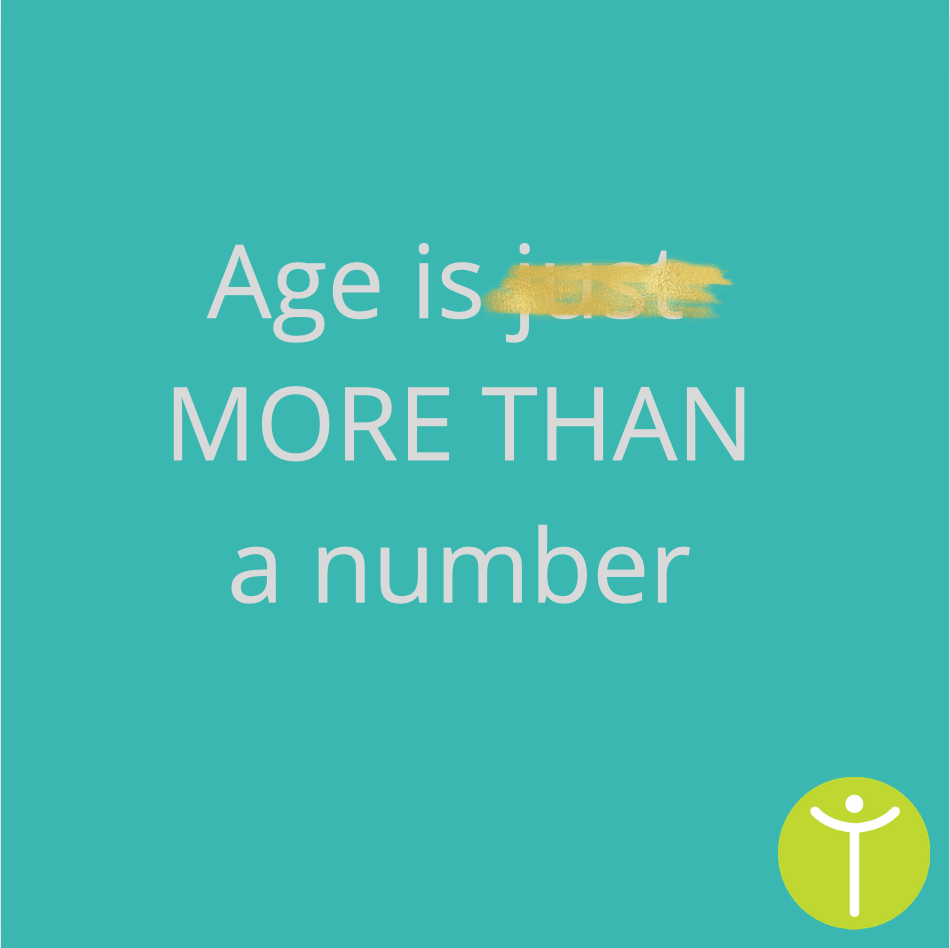Age is more than a number
Last week, I wrote a post on LinkedIn about my ambiguity of the expression “Age is just a number”. It hit a nerve and I therefore think it deserves a longer post here on AgeingUpwards.
What I wrote on LinkedIn was that I believe the saying expresses a resistance to our age. Of course the message is that age shouldn´t be important. We are just a diverse group of human beings regardless of our age. But age IS more than a number. My age is undeniably a big part of how I see myself. Most of the comments on LinkedIn expressed their agreement to this and many of them referred to ways in which they are positively different to their younger selves. Wiser, more mature and able to love and be at peace with themselves were some of the things mentioned. This is backed up by studies that have found that our emotional intelligence improves as we age. Older adults for instance report better regulation and greater control over their emotions. Negative emotions have also been found to decline in frequency and they don´t last as long. Furthermore, older adults tend to express anger outwardly less often as well as having a better inner control of anger using calming strategies[i]. Mindfulness traits (sometimes referred to as dispositional mindfulness) have also been found to increase with age[ii] and older people have higher emotional well-being because of it[iii].
However, wisdom does not automatically come with age. A few commentators on LinkedIn were brave enough to (humorously) admit to some of their shortcomings (which paradoxically indicate a high emotional intelligence). The point is, that the extra years of living might not necessarily affect us in positive ways. Some of us have gotten stuck in unhelpful ways of thinking about ourselves and the world. We are all a product of the culture we live in and because life is so busy and complicated, we often end up living our lives on autopilot and copying the lives our parents lead. Self-ageism is stopping us from seeing our potentials beyond our age and employers, influencers and politicians are similarly unaware of their biases. We are still unconsciously and willingly being herded into living our lives in the 3 distinct phases of learning, earning and retiring, despite the fact this is no longer a financially sustainable nor healthy way for us to construct our lives and society when we are living healthy lives way into and beyond our 70s.
One person in LinkedIn asks for solutions. I believe this has to start with an increased awareness. My upcoming book is a mindfulness-based approach to the longevity revolution. In it, I suggest a practical framework consisting of 6 skills that will help us embrace our age, combat agism from within and help us live and age well. The 6 skills are:
Attention and Awareness: to improve our basic foundational mindfulness skills
Attitude and Affection: to challenge our mindset and thought patterns
Accommodation and Adaptation: to help us respond to the challenges of life (age) with acceptance and self-compassion
I am of course fully aware that mindfulness is not a panacea. To tackle the challenges of the changing demographics both on a societal and individual level, we need to look both inwards and outwards and things need to change on all levels of society. It therefore warms my heart to read all the comments on LinkedIn and to see how many people are aware of, engaged and passionate about ending ageism. I have connected with a lot of you and learned about the things you do on this matter. The solutions are out there, and changes are happening already. Let´s continue making the longevity revolution a positive catalyst for not only the lives of the individual but for a better world. I am not as naïve as I was when I was 20, but I still believe in the power each one of us have, to change the world for the better.
[i] Chen, Y., Peng, Y., & Fang, P. (2016). Emotional Intelligence Mediates the Relationship between Age and Subjective Well-Being. International journal of aging & human development, 83(2), 91–107. https://doi.org/10.1177/0091415016648705
[ii] Shook, Natalie & Ford, Cameron & Strough, JoNell & Delaney, Rebecca & Barker, David. (2017). In the moment and feeling good: Age differences in mindfulness and positive affect. Translational Issues in Psychological Science. 3. 10.1037/tps0000139.
[iii] Hohaus, L. C., & Spark, J. (2013). Getting better with age: Do mindfulness & psychological well-being improve in old age? European Psychiatry, 28, 1. http:// dx.doi.org/10.1016/S0924-9338(13)77295-X




I am still in the process of writing the book. However, if you are interested, I would be happy to offer a webinar/talk on the subject. I really like to do these at the moment as it allows me to connect with the readers. The way they respond gives me input and nuances to the book. So please feel free to reach out by sending an email to: berit@thrivinglife.eu